Region permission: Gender Equality
Partner Reception Event
- September 26th | 5:30pm
- 38 East 32nd Street, Rooftop Terrace, GHS Office, New York

April 8-10, 2024
Dar es Salaam, Tanzania
Join us for an exclusive partner reception event hosted by WomenLift Health and Global Health 50/50 on the sidelines of the 79th UN General Assembly. This event offers a unique opportunity to strengthen relationships with our current partners, connect with potential new donors, review the progress and impact of our initiatives, explore resource mobilization strategies, and gather valuable feedback to shape our future efforts.
Please contact the WomenLift Health team for any questions regarding the event at [email protected].
Join the conversation!
Follow us on Twitter at @womenlifthealth
Subscribe to the WomenLift Health YouTube Channel here.
Follow Global Health 5050 on LinkedIn
URL: https://www.linkedin.com/company/globalhealth5050/
Subscribe to the Global Health 5050 newsletter here
URL: https://globalhealth5050.org/contact-us/
Integrating a Gender Lens in the Fight Against Malaria: A dialogue exploring the power of women’s leadership in Malaria Eradication
- 23 Sept 2024 | 8:00am - 09:30am ET
- Yale Club 50 Vanderbilt Ave, New York, NY 10017 (In person event)
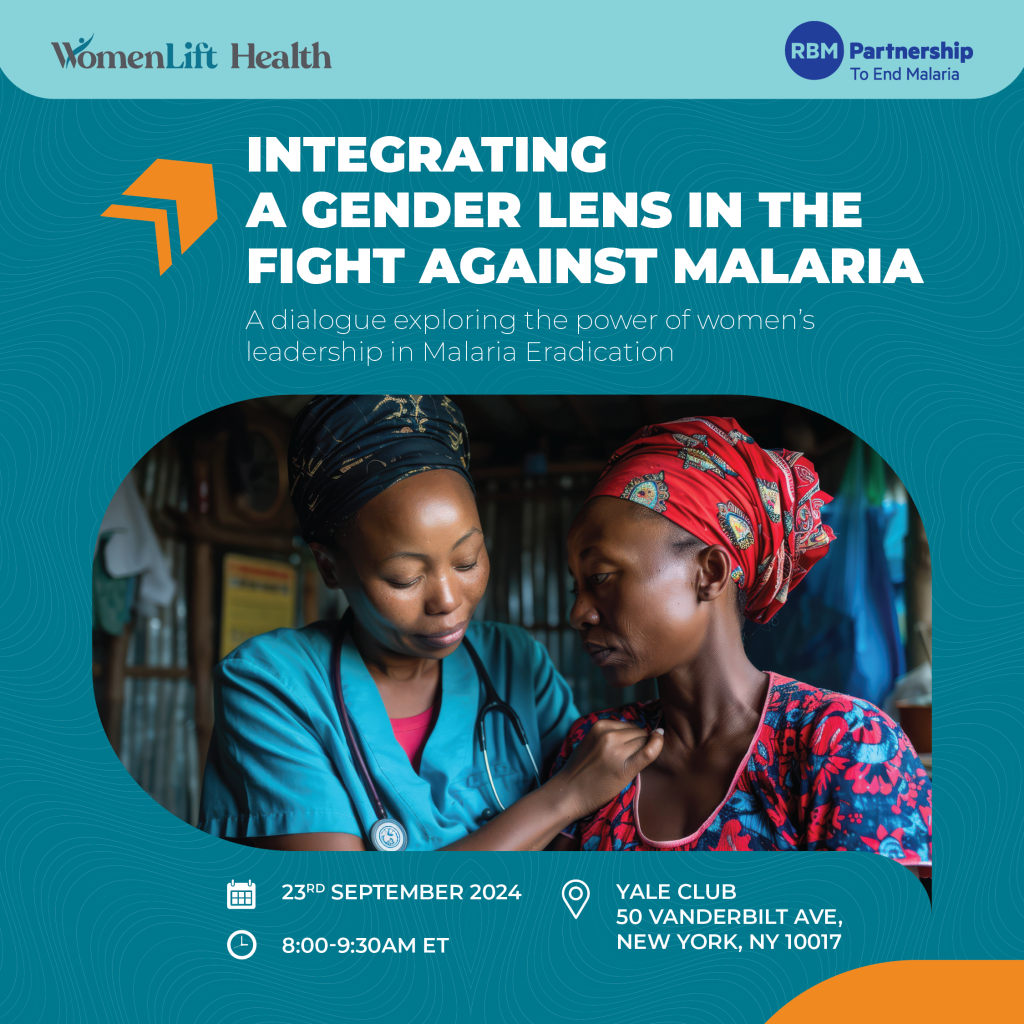
April 8-10, 2024
Dar es Salaam, Tanzania
The 79th Session of the United Nations General Assembly (UNGA 79), will take place in New York from 10 – 24 September. You will be participating in an official side event on 23 September titled, “Integrating a Gender Lens in the Fight Against Malaria: A dialogue exploring the power of women’s leadership in malaria eradication,” hosted by WomenLift Health and the RBM Partnership to End Malaria.
Event Overview
Malaria remains one of the world’s killer diseases, claiming lives and countries’ progress especially in areas with limited resources. The impact of malaria is greater among marginalized communities and particularly affects women and children. Although women play a critical role in healthcare they are underrepresented, holding just a quarter of leadership positions across the global health space.
This session will explore how reimagining leadership, particularly by elevating women in leadership roles, can significantly impact the fight against malaria, especially in the context of climate change, and drive better health outcomes.
Panel Objectives
- Showcase the critical role of women leaders in driving health initiatives, particularly in malaria control and elimination, and in addressing climate change impacts.
- Demonstrate how collaboration between stakeholders from different sectors to strengthen the fight against malaria and address climate change impacts.
- Provide a platform for sharing successful strategies and stories of women leaders in malaria control, health sectors, and climate change adaptation.
- Advocate for policies and institutional changes that support gender equality in leadership, effective malaria control, and climate change adaptation.
- Highlight the need for sustained investment in malaria elimination, women’s leadership programs, and climate change adaptation initiatives.
Please contact the WomenLift Health team for any questions regarding the event at [email protected].
Speakers

Dr. Charles Michael Adekunle
Chief Executive Officer, RBM Partnership to End Malaria
Dr Michael Adekunle Charles is the Chief Executive Officer at the RBM Partnership to End Malaria, which brings together over 500 partners dedicated to eliminating the disease. His leadership is dedicated to putting malaria high on the global health agenda and pursuing interventions that holistically address the disease and the way it intersects with other factors such as climate, gender, poverty and inequity. He is passionate about coordinating malaria interventions, strengthening health systems and working with partners around the world to bring together the right tools to combat the disease. A seasoned leader and medical doctor, Dr. Charles also served at the International Federation of Red Cross and Red Crescent Societies for 17 years, where he was at the helm of strategically aligning the organisation's Africa vision to meet evolving needs. He is an ardent humanitarian and international diplomat who has led teams around the world to deliver diverse and impactful humanitarian and development programmes.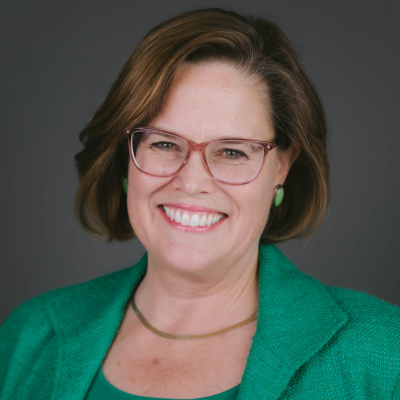
Amie Batson
President, WomenLift Health
Amie Batson, President of WomenLift Health, is an internationally recognised leader in global health with a 30-year career focused on innovation and strategic partnerships. Her extensive experience includes pivotal roles as Chief Strategy Officer at PATH, Senior Deputy Assistant Administrator at USAID, and over a decade at the World Bank where she pioneered innovative health financing mechanisms. Batson's work in immunisation and vaccine financing has unlocked billions of dollars in new funding and led to the establishment of key global health initiatives like Gavi and the Global Financing Facility. She also held a joint appointment at WHO and UNICEF, where she designed the Vaccine Independence Initiative. A Yale University graduate with a Master of Public and Private Management, Batson is a Non-Resident Fellow at the Center for Global Development and a frequent speaker on global health issues. Her current role at WomenLift Health reflects her commitment to expanding the influence of women leaders in global health and driving systemic change towards gender equality in leadership.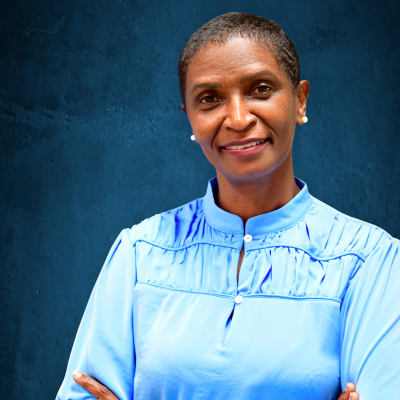
Dr. Filomena Gonçalves
Minister of Health, Cabo Verde
Dr. Filomena Gonçalves is Cabo Verde’s Minister of Health, renowned for her leadership in public health and human rights advocacy. Key accomplishments include leading the country to WHO certification as malaria-free, launching nationwide programs for chronic disease prevention, and designating 2024 as the Year of Mental Health, highlighting her commitment to health equity. Her trajectory exemplifies transformative female leadership, characterized by an innovative and empathetic approach that inspires future generations in Cape Verde and beyond. Reflecting a continuous commitment to social justice, sustainable development, and the promotion of human rights, her exemplary work for the health and well-being of populations reaffirms her position as one of Cape Verde's most influential and respected political figures, having a significant impact at both African regional and international levels.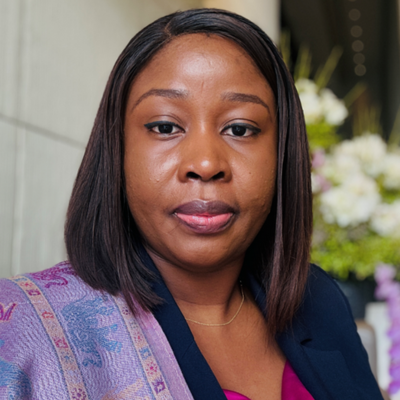
Dr Mayowa Alade
Special Adviser (Technical), Coordinating Minister of Health and Social Welfare in Nigeria
Dr Mayowa Alade is a Special Adviser (Technical) to the Coordinating Minister of Health and Social Welfare in Nigeria. In this role, she provides technical support to various landmark healthcare transformation and reform programs including the Nigeria Health Sector Renewal Investment Initiative (NHSRII) through the Sectoral Wide Approach anchored around reducing maternal and child health outcomes in Nigeria; Human Resources for Health policy/Managed Migration policy; Social Action Fund among others. Prior to this, she worked with the World Bank in Nigeria as a Health Specialist. At the World Bank, she provided technical support to maternal and child health (MCH) programs and health systems strengthening innovations including three large projects - Nigeria State Health Investment Project (NSHIP), the Nigeria Polio Eradication Support Program, Nigeria Immunization Plus and Malaria Progress by Accelerating Coverage and Transforming Services (IMPACT) Project. Dr Alade interfaced with policymakers from the national and subnational governments and other key stakeholders including development partners like GAVI, Gates Foundation, WHO, USAID, and UNICEF on resource allocation for health, restructuring of health care or administrative institutions, and analyzing existing evidence for better decision making. Dr. Alade holds a medical degree from the University of Ilorin, Nigeria, a Masters in Public Health (MPH) from the University of Glasgow, UK, and a Doctor of Public Health (DrPH) in Leadership, Management and Policy from Boston University School of Public Health, USA.
Joy Phumaphi
Executive Director, African Leaders Malaria Alliance (ALMA)
Joy Phumaphi is a distinguished global health leader whose decades of service have been dedicated to advancing public health in Africa and enhancing global health security. Her work, spanning key health priorities, including malaria, Neglected Tropical Diseases (NTDs), Reproductive, Maternal, Child, and Adolescent Health (RMCAH), nutrition, pandemic preparedness and response, and the intersections of gender and climate change with health, aims to transform Africa’s healthcare landscape by improving accessibility, equity, and the response to emerging health threats that significantly affect millions of Africans and the global community. Joy Phumaphi sits on and chairs several boards, where she is a key influencer working to ensure that Africa’s health priorities are recognised and addressed within the global health agenda. She remains an instrumental voice in championing the strengthening of health systems, health financing, and pandemic preparedness, paving the way for Africa to achieve its own health transformations, asserting that a healthy Africa is essential for the continent’s development, peace, and stability. Phumaphi serves as the Executive Secretary of the African Leaders Malaria Alliance (ALMA), a groundbreaking coalition of African Union Heads of State and Government working to eliminate malaria in Africa by 2030. She leads the ALMA Secretariat in supporting the Heads of State and Government’s agenda to drive accountability and action for results, public and private domestic resource mobilisation for malaria, NTDs, and other priorities in Africa’s health development agenda. She also chairs the RBM Partnership to End Malaria and co-chairs the Lancet Pathfinder Commission on Health in the Zero Carbon Economy and is a member of the COVID 19 Task Force on Global Health, Diplomacy and Cooperation.
Dr. Astrid Bonfield
CEO, Malaria No More UK
Dr Bonfield has been the CEO of Malaria No More UK since December 2022. Awarded a CBE in 2014 for her services to charity in the UK and abroad, Dr Bonfield was a co-creator and Chief Executive of The Vision Catalyst Fund and, as Chief Executive of The Queen Elizabeth Diamond Jubilee Trust, she raised over £100m and successfully implemented eye health programmes in 28 countries throughout the Commonwealth. Under Dr Bonfield’s leadership, The Diana, Princess of Wales Memorial Fund became the first investor in the Cluster Munition Coalition which, over an eighteen-month period, successfully secured an international treaty banning cluster bombs. Prior to this, Dr Bonfield developed a policy unit for the Aga Khan Foundation (UK) and represented the Aga Khan Development Network (AKDN) in Brussels, as well as working as a Programme Development Specialist for the Bernard van Leer Foundation in the Netherlands. Bernard van Leer Foundation focusing on HIV/AIDS and growing up in indigenous societies.
Dr. Daniel Ngamije
Director, WHO Global Malaria Programme
Dr Ngamije served as the Rwandan Minister of Health from February 2020 to November 2022. During this time, he led the development and execution of the Health Sector Strategic Plan as well as the development and implementation of the COVID-19 comprehensive response plan. In a previous role (2018–2019), Dr Ngamije served as the National Programme Officer for Malaria and Neglected Tropical Diseases (NTDs) in the WHO Rwanda country office, based in Kigali. Before that, he spent 10 years (2007–2017) coordinating, for the Rwandan Ministry of Health, the mobilization of resources and implementation of projects funded by multilateral and bilateral partners through the Single Project Implementation Unit (SPIU). Between 2005 and 2007, he coordinated Rwanda’s National Malaria Control Programme. Dr Ngamije is the former Co-chair of the Pandemic Fund, a collaborative partnership that finances critical investments to strengthen pandemic prevention, preparedness, and response capacities at national, regional and global levels, with a focus on low- and middle-income countries. He is also a member of the Global Preparedness Monitoring Board (GPMB), an independent monitoring and accountability body to ensure preparedness for global health crises.
Dr. Philip Welkhoff
Director, Malaria, Bill and Melinda Gates Foundation
Philip Welkhoff has led the foundation’s Malaria program since 2018 and has concurrently led the Institute for Disease Modeling (IDM) since 2021. Before becoming director of the Malaria program, Philip served as director of research at IDM before it became part of the foundation. In that role, he helped to develop computer simulations of the transmission dynamics of malaria, polio, and other diseases. This work supported public health professionals and scientists in planning eradication strategies. Philip also served as a pro bono external advisor to various Gates Foundation programs, including Agricultural Development and Water, Sanitation & Hygiene. Philip earned dual undergraduate degrees in mathematics and aerospace engineering at the University of Texas at Austin and holds a Ph.D. in applied and computational mathematics from Princeton University. His doctoral work focused on biophysically inspired models of neural circuits for perceptual decision-making. Philip is a 2004 Hertz Fellow and received a Special Achievement by a Hertz Fellow Award in 2009 for his work on malaria modeling. He serves on the board of the Fannie and John Hertz Foundation and is a senior Hertz Fellowship interviewer.
Yacine Djibo
Founder & Executive Director, Speak Up Africa
Yacine Djibo founded Speak Up Africa in 2011 to discover and implement effective, sustainable solutions to the most challenging problems facing the African people. Focusing on strategic communications, policy and advocacy, Speak Up Africa is dedicated to collaborating with African leaders and citizens to take on issues such as malaria, neglected tropical diseases and sanitation in order to save and improve lives. Yacine Djibo currently sits on the Board of the Sabin Vaccine Institute and the Faecal sludge Management Alliance and serves in an advisory capacity to several organizations, including the Malaria Eradication Scientific Alliance (MESA), GeneConvene Global Collaborative and UNITLIFE. Previously, Yacine Djibo worked as the Senegal country director for Malaria No More, where she developed and managed several high-profile national programs to promote malaria prevention and treatment. Prior to devoting her career to the health and well-being of children and families in Africa, Yacine Djibo honed her skills in the areas of business administration, finance and real estate at several private-sector companies.Session Moderator

Lizz Ntonjira
Director of Communications & Engagement, WomenLift Health
Lizz is a public affairs professional with extensive experience gained within several roles in the public, private, and international development sectors spanning over 17 years. She currently leads the design and implementation of a complex strategy addressing global partner engagement, advocacy and strategic communications to raise awareness about women’s leadership, create a compelling case for change and most importantly, encourage and support concrete actions by women, male allies and influencers for equality in health leadership. Lizz is also an award-winning author of the book #YouthCan and a public speaker on a variety of topics, including, branding & digital media, risk communication & community engagement, adolescent health & advocacy, misinformation and disinformation among others. She holds a bachelor’s degree in Law from the Catholic University of Eastern Africa, a post graduate Professional Diploma in Public Relations from the Chartered Institute of Public Relations in the UK, and a Master’s degree in Public Policy and Management from Strathmore University. She is also a Public Policy Management Fellow from Virginia Commonwealth University in the US, and a recipient of former US President Barack Obama’s Mandela Washington Fellowship for Young African Leaders (2015). Lizz is also a PhD fellow in Healthcare Management at Strathmore Business School.Waitlist
Join the conversation!
Follow us on Twitter at @womenlifthealth
Subscribe to the WomenLift Health YouTube Channel here.
Follow RBM Partnership to End Malaria on Twitter
Subscribe to the RBM Partnership to End Malaria newsletter here
East Africa Regional Dialogues
- 11th October 2024, 8:30am
- Radisson Blu Hotel, Nairobi Upper Hill
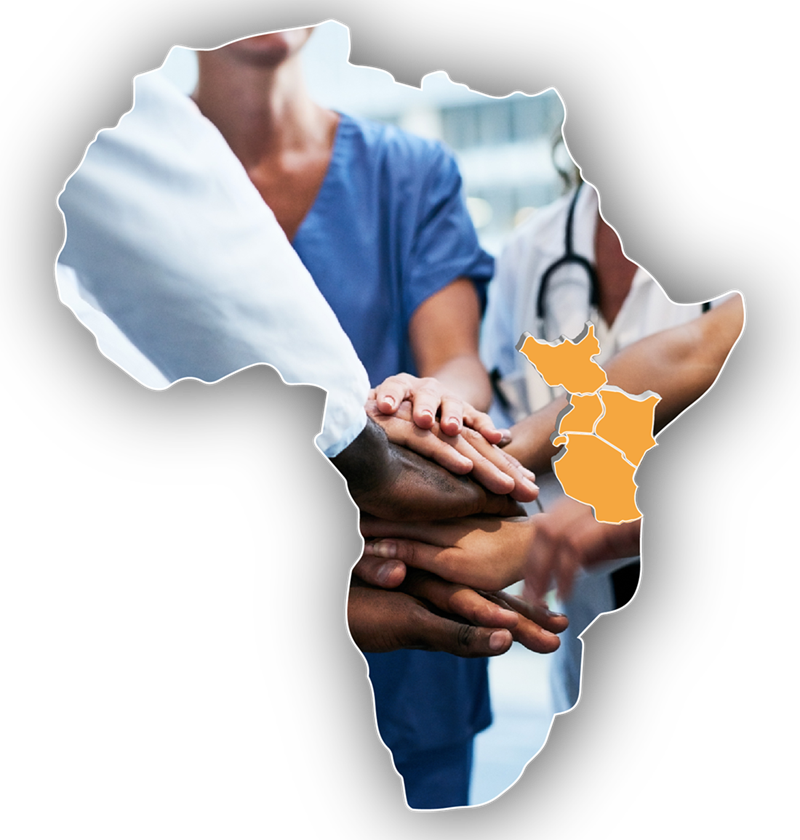
April 8-10, 2024
Dar es Salaam, Tanzania
- 00Days
- 00Hours
- 00Minutes
- 00Seconds
Globally, health institutions are crucial in advancing the Sustainable Development Goals (SDGs), and diverse, inclusive, and equitable leadership is essential to addressing global health and development challenges. Despite women making up 70% of the global healthcare workforce, they are underrepresented in leadership, holding only 25% of senior positions, with women from low- and middle-income countries even less represented. Systemic barriers such as biases, cultural norms, sexual harassment, unequal pay, and limited access to growth opportunities continue to hinder women’s advancement in health leadership.
To address these challenges and promote gender equality, the WomenLift Health East Africa regional hub will host the inaugural East Africa Regional Dialogues on October 11, 2024. This event will focus on driving institutional change, exploring solutions to leadership challenges, and emphasizing the importance of investing in women’s leadership and allyship to transform global health leadership.
Please contact the WomenLift Health team for any questions regarding the event at [email protected].
Speakers

Amie Batson
President, WomenLift Health
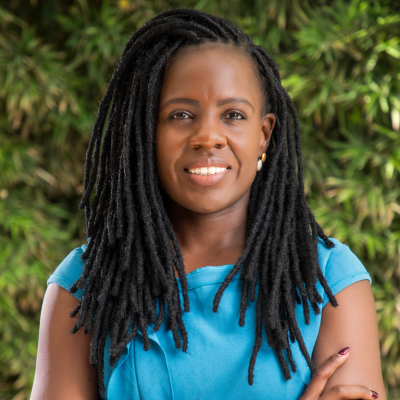
Dr. Norah Obudho
East Africa, Director WomenLift Health
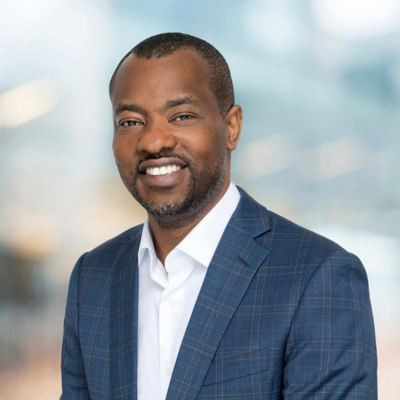
Dr. Paulin Basinga
Director, Africa, Bill and Melinda Gates Foundation
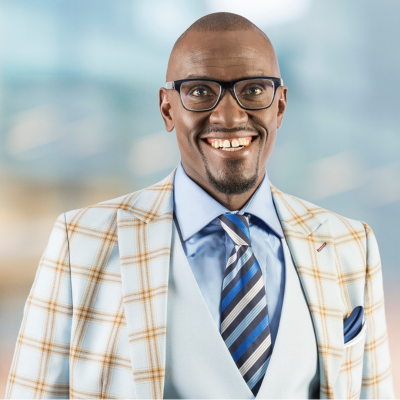
Samburu Wa-Shiko
Regional Representative, Bill and Melinda Gates Foundation
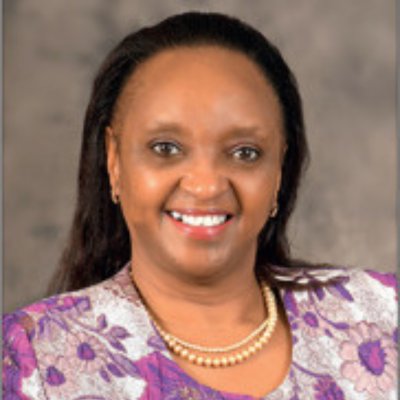
Prof. Anne-Beatrice Kihara
President, The International Federation of Gynecology and Obstetrics (FIGO)
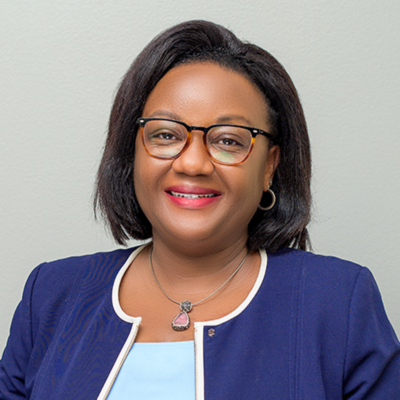
Prof. Rhoda Wanyenze
Dean, Makerere University School of Public Health
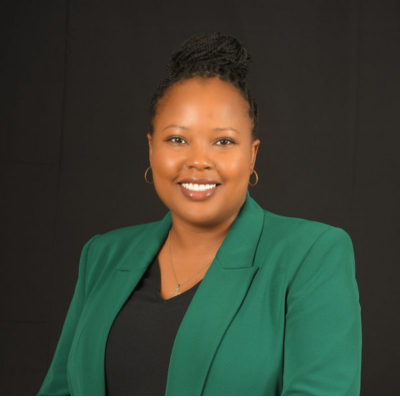
Dr. Angela Ndunge
Strathmore University Women in Leadership Program Rep, Strathmore University
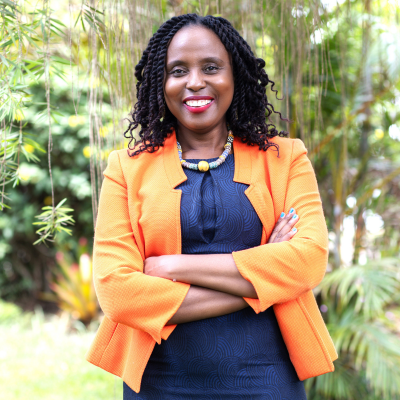
Dr. Catherine Kyobutungi
Executive Director, APHRC
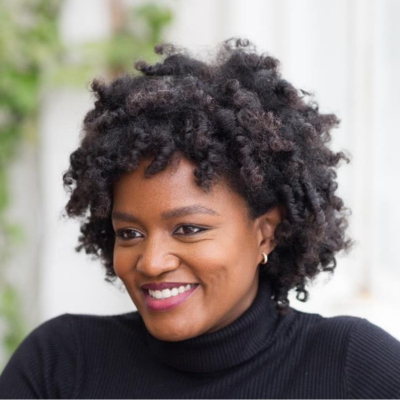
Philana Mugyenyi
Director, Government Affairs, Public Policy and Market Access (Africa), GE HealthCare
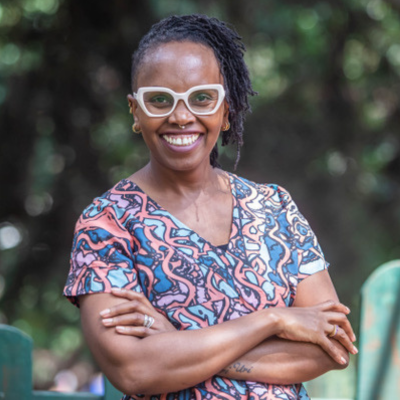
Purity Kagwiria
Board Member, Humanity United
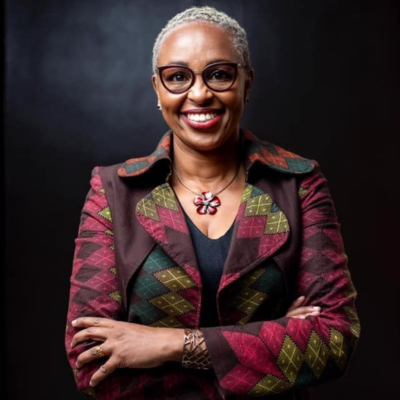
Renee Ngamau
Co-Founder, CheckUps Medical
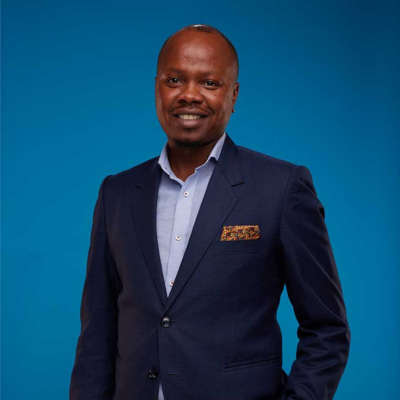
Dr. Roy Bore
Chief Executive Officer, HealthX Africa
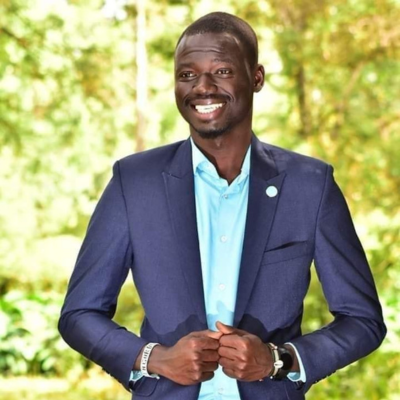
Data Emmanuel Gordon
Executive Director, Men4Women
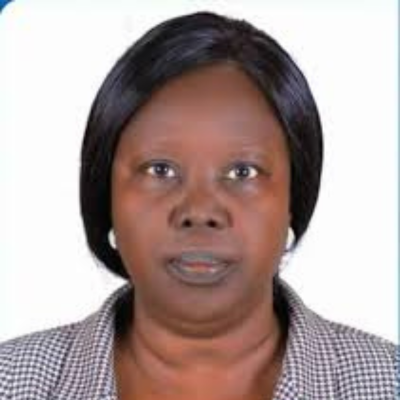
Prof. Rose Costa
Associate Professor, University of Juba
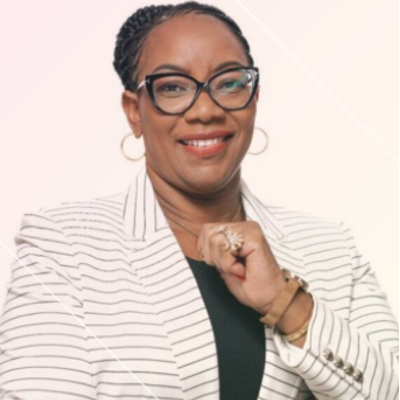
Hon. Cecily Kariuki
Former Cabinet Secretary Health, founder and CEO, Re-imagine impact Associates
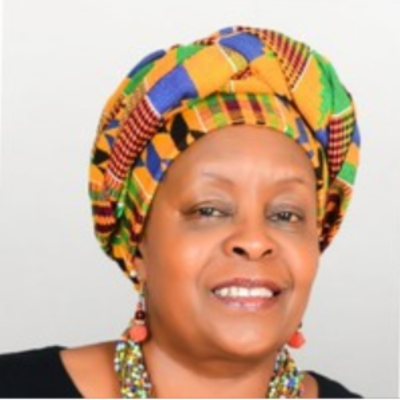
Dr. Kaendi Munguti
Researcher, Gender and Public health specialist
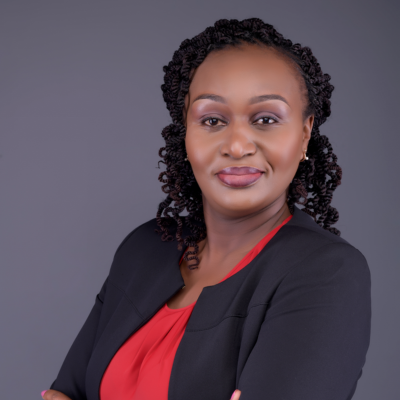
Carolyne Njuguna
East Africa Hub Director & Kenya Country Director, PATH
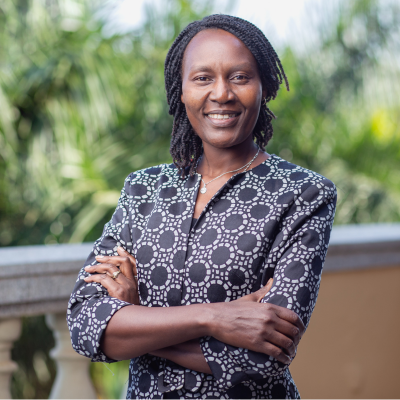
Dr. Doreen Ondo
Program Officer PMTCT/DR, Ministry of Health, Uganda
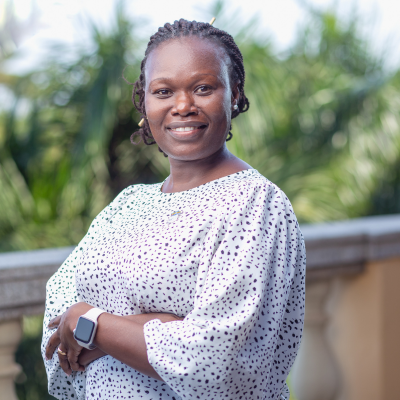
Stella Mujaya
Public Health Consultant
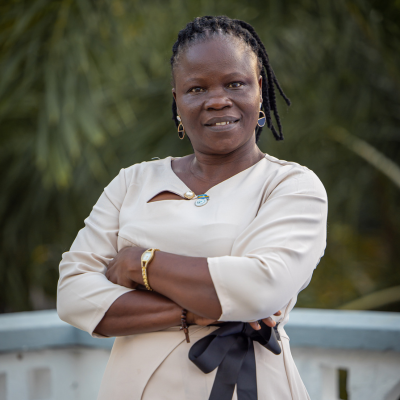
Dr. Jane Keliki Mara
Technical Officer Reproductive Health Association of South Sudan
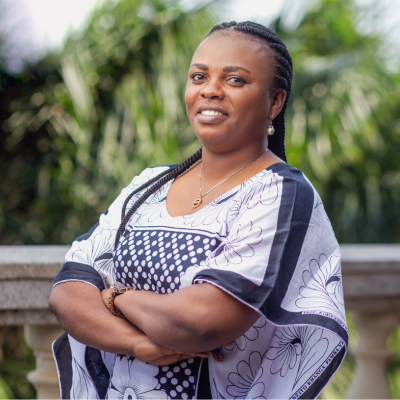
Dr. Marie Grace Sandra
Assistant Lecturer, University of Rwanda

June Gachui
Corporate MC
Register
Join the conversation!
Follow us on Twitter at @womenlifthealth
Subscribe to the WomenLift Health YouTube Channel here.
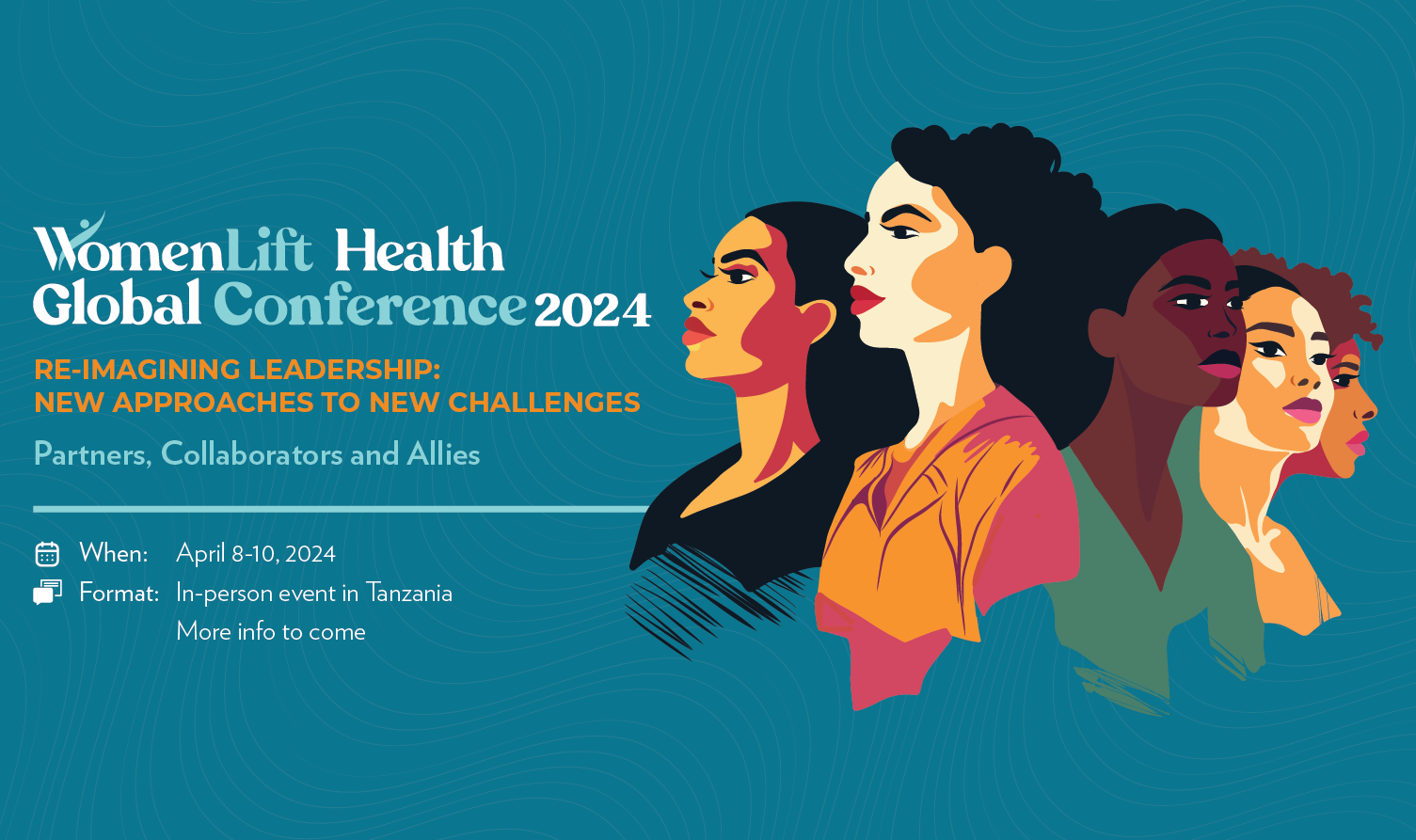


WomenLift Health Global Conference 2024
- April 8-10, 2024
- Dar es Salaam, Tanzania
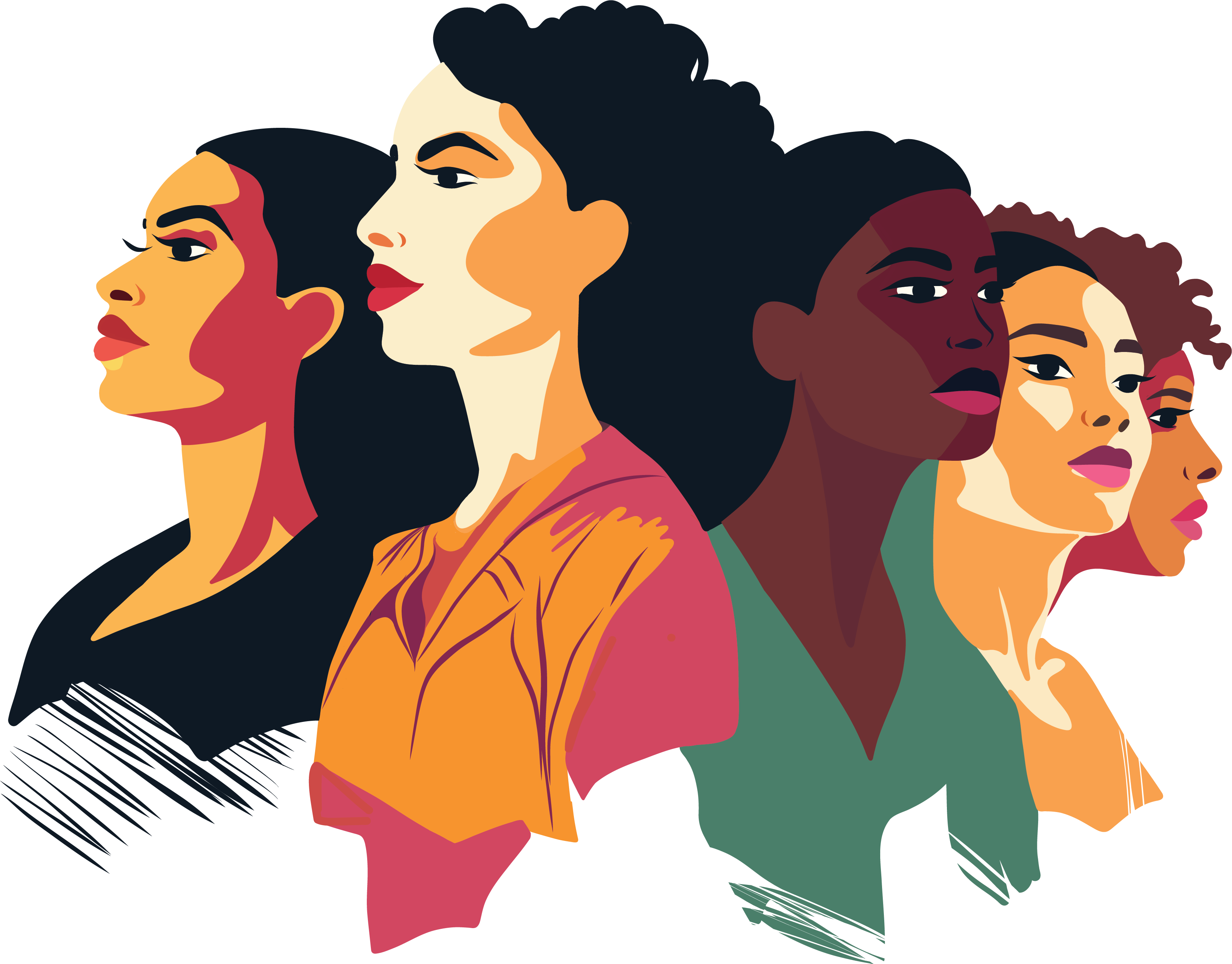
WomenLift Health Global Conference 2024
April 8-10, 2024
Dar es Salaam, Tanzania
- 00Days
- 00Hours
- 00Minutes
- 00Seconds
Following a two-year hiatus and two virtual conferences during the pandemic (in 2020 and 2021), this in-person event will bring together emerging and senior women leaders, opinion shapers, policymakers and male allies in health, gender, and development for engaging, needle-pushing discourse on the transformation of global health through inclusive leadership.
The WomenLift Health Global Conference will also provide an opportunity to build networks and leadership skills, mentor and inspire women leaders and catalyze global action to close the gender gap in health leadership.
Please contact the WomenLift Health team for any questions regarding the conference at [email protected].
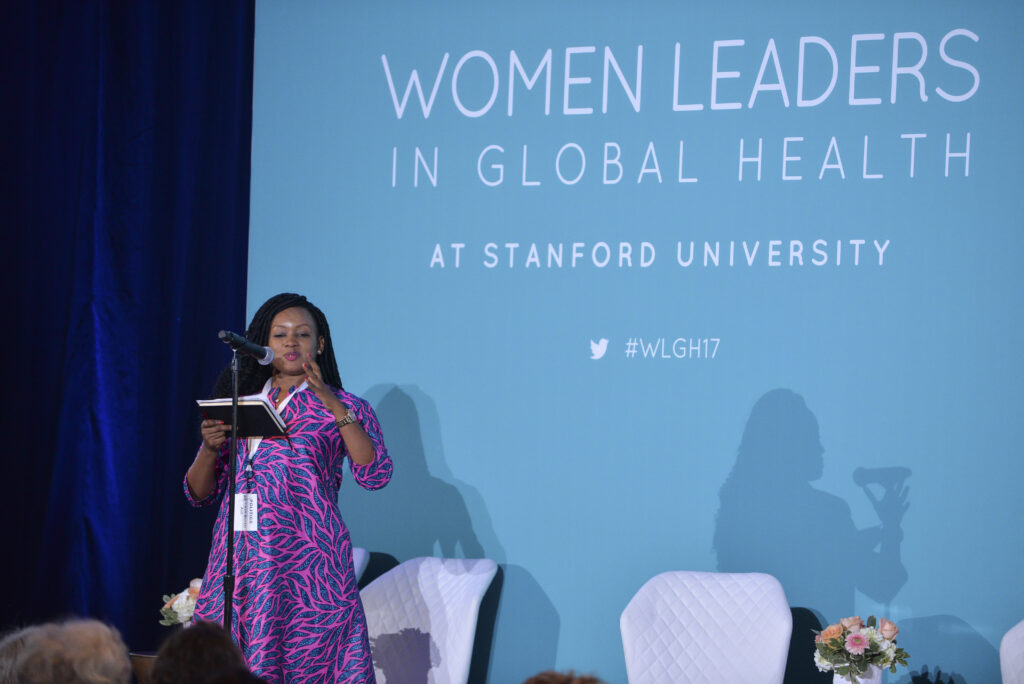
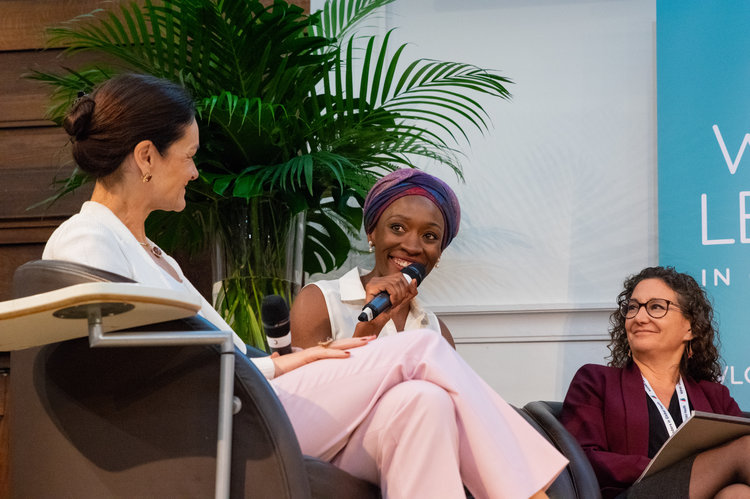
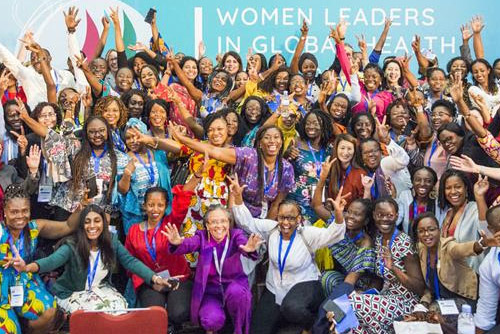
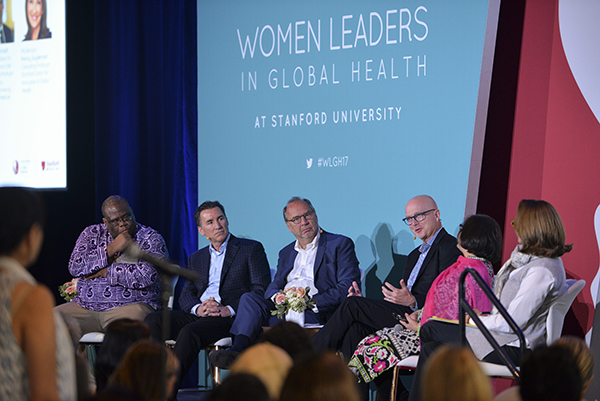
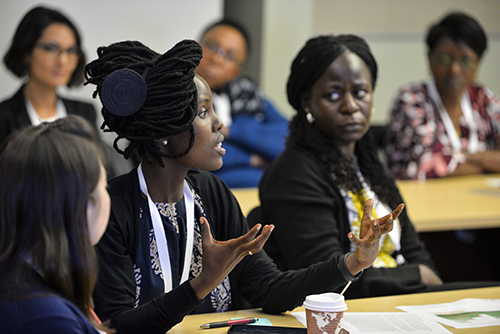
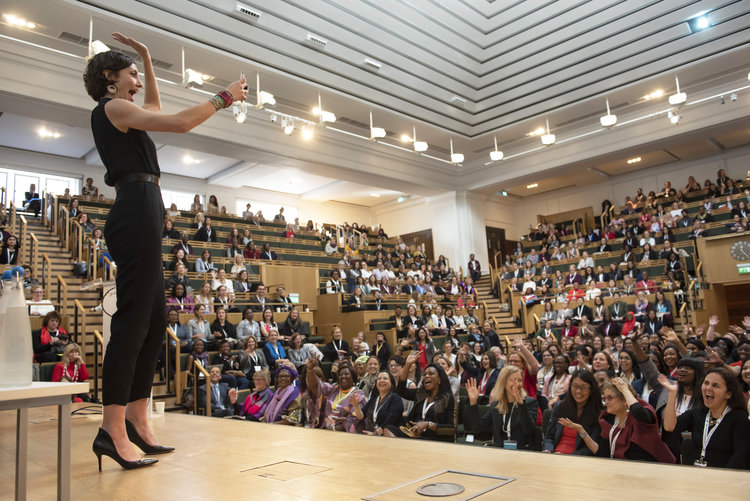
Join the conversation!
Follow us on Twitter at @womenlifthealth #WLHGC2024 #ReimaginingLeadership
Subscribe to the WomenLift Health YouTube Channel here.
Q&A with Kate Rademacher, Senior Technical Advisor and Project Director, FHI 360
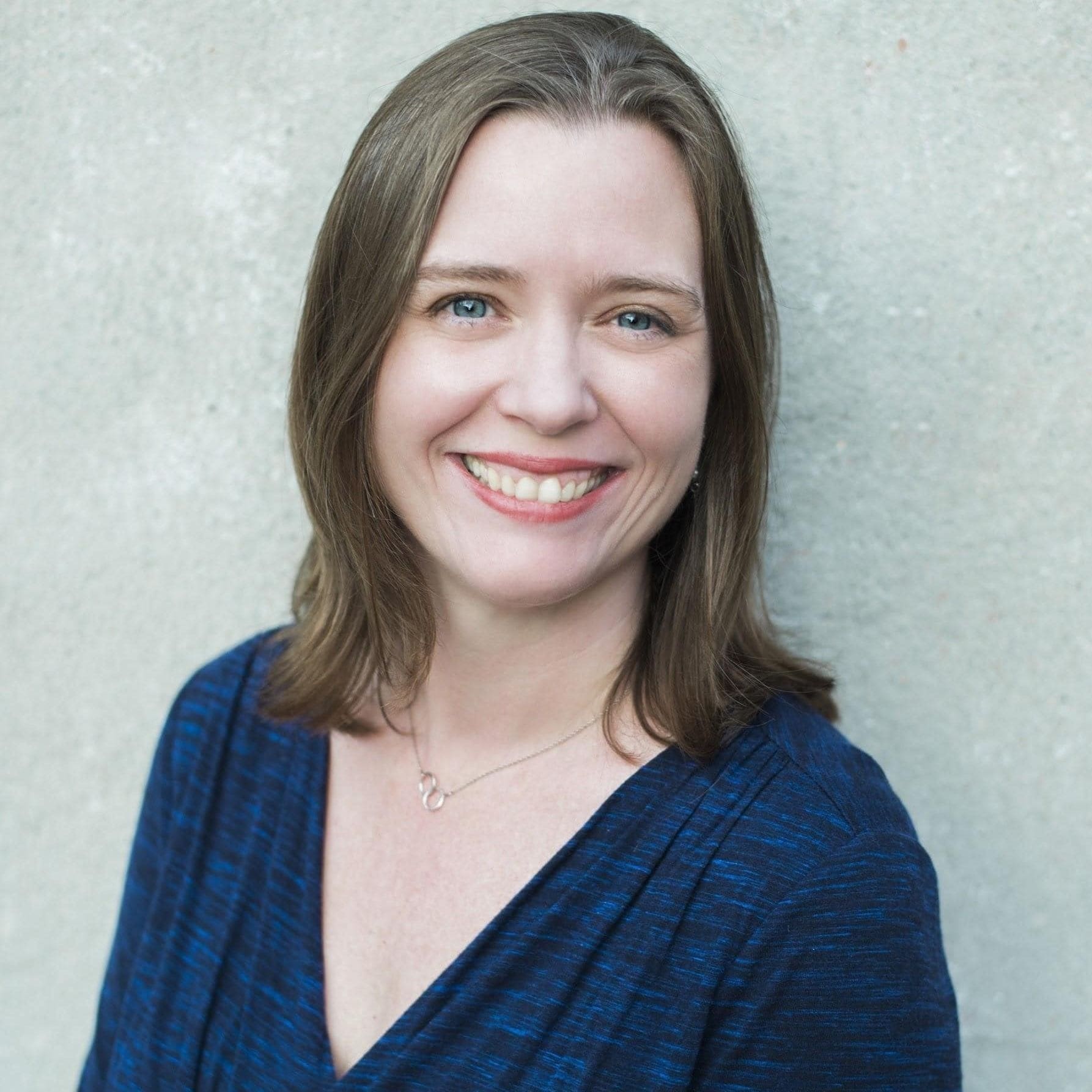
We spoke with Kate Rademacher, Senior Technical Advisor and Project Director, FHI 360, and one of the members of our 2020 Leadership Journey. Read our Q&A to learn about her new book, what has surprised her about the Journey and who is inspiring her.
What is your Leadership Journey Project and why did you choose it?
In 2019, the World Health Organization classified burn-out as an “occupational phenomenon” for the first time in their International Classification of Diseases. Since that time, there has been emerging evidence that overwork can literally kill us. Anecdotally, I have observed that mid-career women professionals in global health frequently struggle to avoid chronic stress and burn-out. Through my WomenLift Health leadership project, I am exploring ways that we can support global health professionals throughout all career stages to avoid burnout. This topic relates to my new book, Reclaiming Rest, which was released by Broadleaf Books in June 2021.
What has surprised you about the WomenLift Health Leadership Journey experience?
The journey has caused me to reflect more deeply on the definitions and meaning of women’s leadership. It is interesting because WomenLift Health is grant-funded, and this may be one of the first times in my life I’m on the “receiving” not “giving” end of a grant-funded project. As such, being a part of the journey has made me think about the big-picture goals we’re trying to achieve. That is, at the end of the project, will I be a “success” in terms of achieving project indicators? This links directly to the question of how we define “success” for women and women’s leadership more broadly. Is it about “climbing the ladder” and achieving external positions of status and power? Is it about increasing one’s sphere of influence and impact? Is it about stepping out in new and brave ways that we might not have otherwise? Is it about having the freedom and empowerment to define leadership for ourselves? Is it all of the above? These are interesting questions to ponder, and the leadership journey has helped me reflect on these topics. The didactic component as well as the mentoring and coaching components of the WomenLift Health Journey have all been wonderful. Plus, the cohort of women is incredibly supportive and inspiring!
How can we ensure that women are at the center of not only COVID recovery plans but also long-term strategies for the improvement of health?
During the pandemic, the phrase “build back better” has moved into the mainstream. The past year and a half has shown us there is clearly a need to build back better when it comes to women’s health, gender equity and global development more broadly. The pandemic has also revealed the enormous burden and unrealistic expectations placed on working parents in the U.S. and around the world. My hope is that as we work to build back better, we can reflect deeply on our values, and identify how we can support individuals and families to ensure opportunities for healthy, safe, equitable work and rest.
Who inspires you?
Most of my professional work focuses on increasing access to contraception. Globally, an estimated 218 million women living in developing countries want to avoid or delay pregnancies but are not using a modern contraceptive method. I am deeply inspired by women professionals I know who have dedicated their careers to expanding access to contraception globally and who have mentored me. This includes my supervisor, Dr. Laneta Dorflinger, at FHI 360. Dr. Dorflinger is a passionate advocate for expanding family planning access and has been working in the field for over thirty-five years. She currently oversees the single largest group of scientists working together to develop and introduce new mid-to long‐acting contraceptive methods for women. She is a daily inspiration to our team!
Allyship Matters: How Men Can Help Accelerate Gender Equality in Health

When men are involved in workplace programs to promote gender inclusion, 96 percent of organizations see progress. That number drops to only 30 percent when men are not engaged.
For change to come, we need to engage people of all genders. This is certainly true in the global health field, where women make up only a quarter of leadership despite making up 70 percent of the workforce.
How can men be involved in bringing about systemic change to correct this imbalance? We asked 14 global health leaders and advocates from across the world that very question. Here’s what they had to say.
Be a Vocal Champion
“Male allies should become far more explicit and vocal about their support to promoting women’s leadership than what has been hitherto. They must begin to question themselves, if they have done enough and how they could better their support. I am sure most would find out that they can’t stop doing just ‘one’ thing. They must demonstrate their support wherever possible in their own professional lives by encouraging women to take up leadership positions and enlist support from other male colleagues. The support for women’s leadership should remain unconditional irrespective of the colour, race, caste, disabilities and other forms of marginalization or well-known patriarchal arguments which prime women’s roles as caregivers and homemakers. It is the responsibility of the male allies and women allies as well to remain sensitive to these inherent biases and address them explicitly.”
Ravi Verma, Regional Director, International Center for Research on Women, WomenLift Health Global Advisory Board Member
“The COVID pandemic has exacerbated existing inequalities between women and men in almost all areas of life. Men have been comfortable sidelining or undermining the role of women in leadership positions. This is a bitter truth in global health. So, men allies need to invest themselves in understanding the importance of healthy masculinities in global health and women’s representation in leadership roles. Thus, we need to support and make space for women, and listen to the voices of women and girls. Their voices must be included in every decision-making level. We need to be partners in the fight for a gender equal world, amplifying women’s voices and confronting inequitable structures. Gender equality is not just a women’s issue and it’s an issue that affects everyone. Thus, gender equality and promoting women’s leadership will only be achieved when women and men work together. The world with equality would be a just and inclusive society.”
Ye Min Ko, Women Deliver Young Leader, Research Officer at Population Services International Myanmar
“I would like my male colleagues to support women and girls as they can. Women’s health is very crucial to the survival of communities and entire nations. The lack of harmony and the non-involvement of men in this fight against violence can exacerbate inequalities between societies and disrupt community structures. The pandemic has reproduced colonial structures of power, wealth and extraction, and has further divided people into ‘haves’ and ‘have-nots’. Without collective awareness of men and boys for immediate action by communities, national governments, civil society and the private sector, only the few nations that hold the most global wealth will recover. Girls and women cannot wait any longer, I call on the responsibility of my male peers to join us in championing gender equality and stop believing that gender equality is only for women, it is a very important fact for stability and one of the most beautiful legacies to leave to our children.”
Sylvain Obedi, Member of Generation Equality Youth Task Force, Country Coordinator for Enable the Disable Action
Listen to Women’s Experiences and Ideas
“Without a doubt, now is the time for men to immediately strengthen their deep and intentional listening of all women, trans, intersex and gender non-conforming folks in the places where they operate. Talk less and make space, period. This is not the moment to showcase how ‘woke’ you are and what you’ve done to advance gender equity. This is the moment for radical co-conspiracy, which does mean doing their own work, like unlearning toxic masculinities and dismantling white supremacies in themselves, in their institutions, and committing to support other men to do the same. And p.s., just do it. We do not need to always hear about it.”
Erin Williams, Program Director – Sexual and Reproductive Health, Rights and Justice, Global Fund for Women, WomenLift Health Leadership Journey Member, 2021 US Cohort
“This year, I would like male allies to listen and learn. I would encourage male allies to listen to the lived experiences of their friends, family, neighbours, and coworkers alike, as well as to global advocates for gender and health equity. I would then implore them to continue their learning by accessing resources, online and in their communities to better support positive impact in this space. Male allies play an imperative role in advancing equality, and their empathy, understanding and collaboration are critical to developing inclusive, scalable and sustainable solutions.”
Avery Johnstone, Women Deliver Young Leader, Canadian Council of Young Feminists Youth Advisor
“As a male leader myself, in these times of the pandemic, I have learnt the importance of communication, more so with women team members who sometimes do not open up about the challenges they face. Work from home has changed the working environment for all of us, but women are taking greater roles at home and trying to divide time to be productive and efficient on all fronts. In my view, as male allies, an important thing we can do is recognize, communicate, be non-judgemental and be flexible – give them a safe space to express and create. And this is not just for colleagues but more importantly for women in our families and communities. The women of today want to progress on merit and do not like special favours – but they do want an equal measuring scale, and it is our responsibility to ensure that.”
Vinoj Manning, CEO, Ipas Development Foundation, Women Leaders in Global Health 2020 Conference Speaker
Be a Mentor
“This year has been brutal for women in so many ways and has eroded important gains that women have made in global health. Male allies have an opportunity to promote women’s leadership by supporting policies that disproportionately impact women (e.g., paid family leave), while supporting loved ones at home by engaging in caregiving roles to other family members (e.g., children) to free up women’s time. There are so many opportunities for sponsorship – from inviting women to speak in key discussions (and ensuring that it really is the end of the ‘manel’) to tangibly supporting their promotion, which can include writing letters of support or providing opportunities for women to excel (e.g., asking them to be co-authors on a paper, lead a discussion, or represent a team at a conference).”
Ingrid Katz, Associate Faculty Director of Harvard Global Health Institute, WomenLift Health Leadership Journey Member, 2020 US Cohort
“Select two women either within your organization or elsewhere in global health to mentor. Work with them to set development goals, listen to them, and support them to achieve those goals.”
Bindiya Patel, Managing Director, Programs and Innovation, PATH, WomenLift Health Leadership Journey Member, 2020 US Cohort
“Right now, we need to proactively counter the regressive impact of biased decision-making about women in professional roles. Nominate, promote, and support your female colleagues in taking on new leadership roles. Avoid making the biased assumption that those with caregiving responsibilities will choose to opt out of leadership opportunities. When you hear a co-worker say, ‘She already has too much on her plate,’ respond with ‘Let’s pick the most qualified person for the role and let her decide.’ When a female colleague tells you she is too busy to continue in a role or take on a new one, don’t just accept this immediately. Instead, try responding with ‘You are really the best person for this role. What support do you need to be able to add this to your plate?’”
Katherine Van Loon, Associate Professor of Clinical Medicine, Director of Global Cancer Program
University of California, San Francisco (UCSF), WomenLift Health Leadership Journey Member, 2021 US Cohort
Take a Bigger Role at Home
“Women are an important part of the healthcare workforce. Please consider staying home to care for children and elders and allow your female partner to return to the workforce until childcare, schooling and eldercare services can fully return.”
Stephanie Gallagher, Senior Technical Advisor, Private Sector – Healthcare Practice, Palladium, WomenLift Health Leadership Journey Member, 2021 US Cohort
Lean Out
“Male allyship is not about speaking on behalf of women but rather starts with listening to women. There are existing power structures and power asymmetries, and the temptation is to retain one’s power — ostensibly to use it for good — while remaining in the spotlight. For example, to elevate other voices from more marginalized or less-represented backgrounds, provided that one is visibly seen to be ‘passing the mic’. The existing power structures and existing range of presently-amplified voices will not be enough to achieve the outcomes we all want. So one thing male allies should do this year is seek out perspectives of women not currently in our circles, listen to those voices and allow them to shape our points of view, and find ways to shift power. Allyship is about showing up over the long haul, listening and learning, building trust, and not caring whether one is visible.”
Philip Welkhoff, Director of Malaria, Bill & Melinda Gates Foundation
“Male allies have to intentionally give up some of their space in global health. They can suggest a female colleague speak on a panel instead of them, suggest a woman lead the task force instead of them. Either make more seats at the table for women, or step away from the table so that others can sit down.”
Callie Simon, Adolescent Sexual and Reproductive Health Advisor and Team Lead, Save the Children, WomenLift Health Leadership Journey Member, 2020 US Cohort
“The past several months have shown that when women are involved and lead in global health, they bring a collaborative, caring and compassionate perspective, driven by science and evidence, where everyone benefits. Male allies are critical partners for women to step in and lead within global health spheres. This year, as the pandemic continues to highlight gender disparities in global health leadership and global health overall, it is imperative that male allies (specifically male leaders in positions of power) step up to actively partner with, promote, mentor, sponsor and, at times, deliberately lean out and make space for women to assume leadership roles and positions in global health. This is especially needed in settings where additional cultural and resource barriers exist for women to lean in.”
Kashmira Date, Director – Global Medical Affairs Leader (Vaccines), Johnson & Johnson Global Public Health, WomenLift Health Leadership Journey Member, 2020 US Cohort
Educate Yourself on the Issues
“3 key words for men allies: STOP AND THINK!!! Do I truly understand the inequities that women (and their children) face in the sphere of global health? Do I understand how COVID has exacerbated those inequities? Do I reflect on which people I work with in the field of global health to ensure I include women? Am I willing to mentor female colleagues who wish to grow in global health and am I willing to give them real responsibilities? Will I support gender specific research to illuminate the challenges and provide a solution? Am I aware and sensitive to the system changes required to improve equity?Finally, do I appreciate the tremendous impact of protecting female health, women’s education and women’s economic empowerment in achieving the SDGs?”
Alex Coutinho, Board Chair, International Partnership for Microbicides, Women Leaders in Global Health 2020 Conference Speaker
We hope you find this guidance useful — whether you’re a male ally or looking for ways to engage men in the movement for gender equality in global health and beyond.
Q&A with Allison Phillips, Executive Director, Stanford Center for Innovation in Global Health
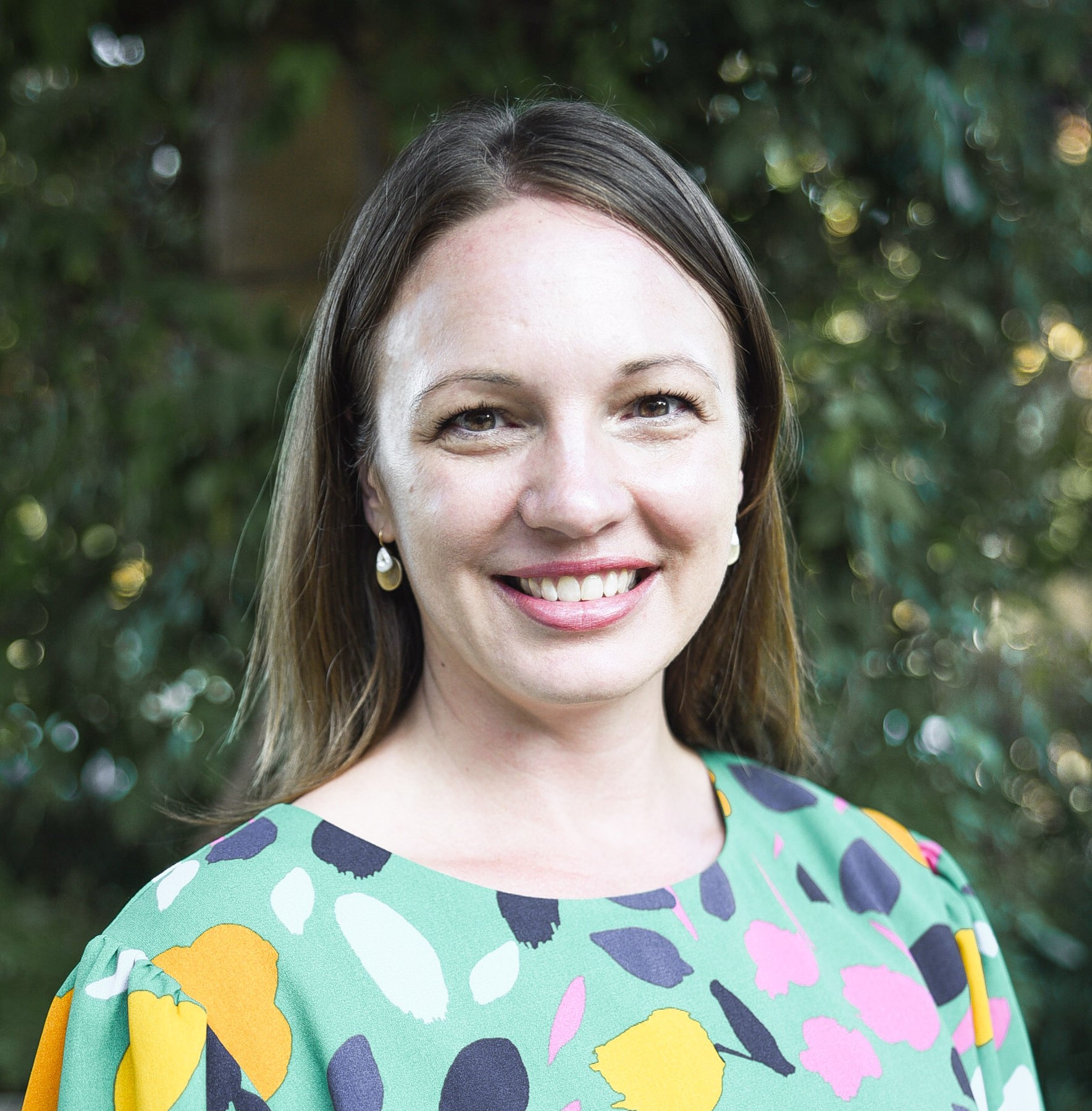
We spoke with Allison Phillips, the Executive Director of the Stanford Center for Innovation in Global Health, and one of the members of our 2020 Leadership Journey. Read our Q&A to learn about her Leadership Journey Project, how she emphasizes mentorship in her work and who is inspiring her.
What is your Leadership Journey Project and why did you choose it?
My Leadership Project is to develop a strategic plan for Stanford Global Health, and more importantly, to design a ground-up process that incorporates the hopes, dreams, perspectives and global health projects of over 180 faculty, students, staff, and members of my incredible team. I joined the Stanford Center for Innovation in Global Health only a few months before the WomenLift Health Leadership Journey commenced and saw an opportunity and a challenge to engage stakeholders and represent their work and vision for global health at Stanford. This is not easy, as Stanford is a huge institution without a school of public health or central home for global health. I have been able to apply a lot of the lessons I’ve learned during this Journey to my Leadership Project and a newfound awareness of my strengths and leadership style that has helped me chart a path for community engagement and strategic planning.
What has surprised you about the WomenLift Health Leadership Journey experience?
The WomenLift Health Leadership Journey coincided with (hopefully!) the most surprising, unpredictable and emotionally difficult phase in our lifetime. The COVID pandemic, the US election, the horrific tragedies related to structural racism and injustices and unavoidable shifts to all of our day-to-days have been overwhelming and consuming. I expected that the Journey would include lessons, insights and leadership tips from experts, but I never expected that these women would be such a source of support to me personally and professionally through this difficult time. Having the opportunity for deep connection, reflection, vulnerability, and group processing with 23 amazing, inspiring women during a dark time is such a bright spot in my career. I felt supported, seen, heard and loved by these women and I know that our connections will remain even after the Journey concludes.
How has COVID shifted the focus of your work?
COVID has shifted everything! No one was trained or prepared for the way that this virus would shift the focus of everyone’s life and work, even those of us working in global health. Prior to joining Stanford in late 2019, I had spent my career working on HIV and malaria in Africa and Asia. I traveled a lot and was inspired by in-country partners living in affected areas. Thanks to COVID and deep thinking about the decolonizing global health movement, I have had the opportunity to think more locally about the health inequities that we face here in the US on a daily basis. For example, I had the opportunity to support a Native American reservation prepare for a COVID surge – and I learned about how the tribe’s access to health services, life expectancy, literacy rates, etc. are similar to many of the communities I had worked with in Tanzania or Eswatini. I am now motivated to engage on local health equity issues as well as global ones.
How can we ensure that women are at the center of not only COVID recovery plans but also long-term strategies for the improvement of health?
It takes a village, and the strength of women lifting each other up is powerful. I am a big proponent of mentoring and advocating for women’s professional growth opportunities – it gives me so much joy to facilitate a woman getting a promotion or making a career shift to a role that they are excited about. As a field, global health often recycles the same experts – and they are often white men from the Global North. In our COVID recovery plans and long-term strategies for health improvement, we need to disrupt the status quo and do whatever it takes to lift up women front and center.
Who inspires you?
I am very easily inspired! Especially during this pandemic, health workers who have fought so tirelessly in the line of fire have been nothing short of breathtaking. I’m especially inspired by the health workers who have had to treat COVID patients in under-resourced settings, e.g. with no oxygen or PPE. I am also inspired every day by my two daughters who are strong, adaptable, hilarious and goofy – they have expanded my world view, inspire me to be more intentional in my life choices and have taught me that taking a break for a Shakira dance party can solve most problems.
Q&A with Sia Nowrojee, Senior Director, Global Community at Girl Up, UN Foundation
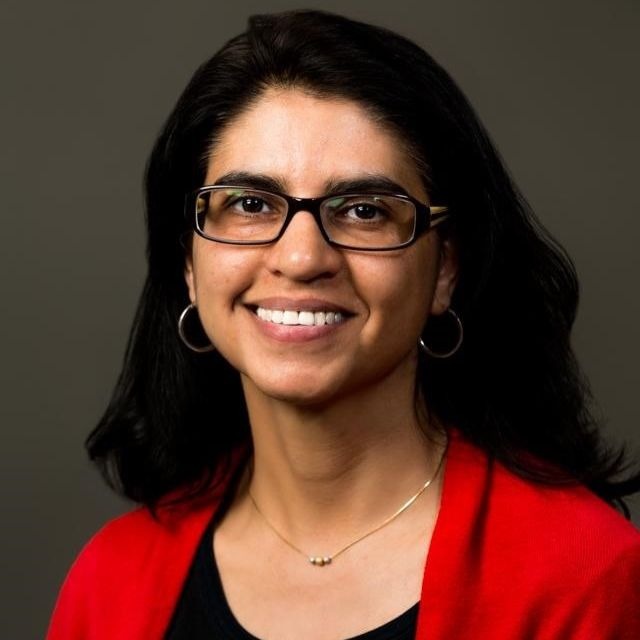
We spoke with Sia Nowrojee, the Senior Director of the Global Community at Girl Up at the UN Foundation and one of the members of our 2020 Leadership Journey. Read our Q&A to learn about her Leadership Journey Project, how she’s working to center women and girls in global health and who is inspiring her.
What is your Leadership Journey Project and why did you choose it?
My Leadership Journey Project involves designing and leading the process to transfer ownership of the 3D Program for Girls and Women to our partners in India. The 3D Program advances gender equality by strengthening women’s platforms to hold the government accountable and by demonstrating the value of multi-sectoral programs. From 2017-2021, we worked in partnership with civil society, the private sector and local government in Pune District, Maharashtra State, India. In 2020, against the backdrop of the COVID pandemic and the global reckoning on social justice, we decided to transfer ownership of key elements of the program to our implementing partners, who will scale up and increase the impact of the program. Having this as my Leadership Journey Project has given me the time and space to reflect on and learn from the process, both as a partner and as a leader.
What has surprised you about the WomenLift Health Leadership Journey experience?
The altered reality brought on by COVID, defined by the move to online platforms, created an accelerated intimacy among members of the cohort. I have been joyfully surprised by the connections I have made and the solidarity and support I have seen across the cohort. We embarked on this Journey together, weathering the professional and personal challenges of COVID. We have supported each other through challenges and celebrated victories together. I expected to gain a professional network, but I have gained a circle of (extremely accomplished!) friends.
How has COVID shifted the focus of your work?
Fundamentally. When COVID hit, the 3D Program shifted from our regular programming to supporting our implementing partners, who were thrust on to the frontlines of COVID relief efforts. Our 3D Program platforms, specifically the women’s collectives we supported, were designed to address disparities, inequalities and barriers to access before COVID-19. They also proved effective in facilitating COVID relief, information and responses. More personally, our decision to transfer ownership of the program, a decision that was informed by COVID, meant that I had to find a new job. I now serve as Senior Director of the Global Community for Girl Up, a girls leadership program at the UN Foundation. I think it is fitting that as a WomenLift Health fellow, I am now leading at a girls leadership program!
How can we ensure that women are at the center of not only COVID recovery plans but also long-term strategies for the improvement of health?
COVID has endangered hard-won gains in the fight for gender equality. It has also put the spotlight on rigid gender-based norms and barriers and critical weaknesses in public systems. COVID recovery is going to define the structure, resource allocation and services of public health systems and policy for decades to come. It is critical that all stakeholders in government, civil society and the private sector engage and listen to women as we assess the damage, put in place immediate recovery plans and build back better. It is up to all of us to hold those stakeholders accountable and ensure that women are at the table as those decisions are made.
Who inspires you?
Outside of my family, my biggest inspiration is Audre Lorde, who self-identified as a Black feminist, lesbian, mother, poet and activist. Before she died in 1992, Audre Lorde shared her wisdom through her amazing essays and poems. I was lucky enough to meet her when I was in college, and for me, a young feminist of color, she made truth, justice and intersectionality seem possible. Her quote, “There is no thing as a single-issue struggle because we do not live single-issue lives” has guided me throughout my life and work.
Covid’s Gender Gap
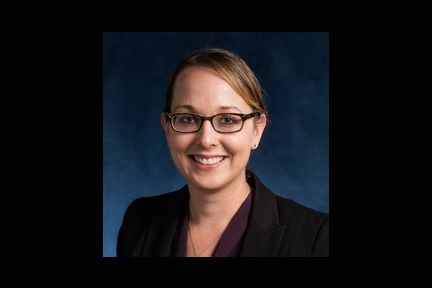
Most of our nation’s essential workers, particularly in healthcare, are women who are facing burnout, furloughs, pay cuts and inequities, mom guilt, mental health risks and increased risk of exposure to COVID-19 even as they are being asked to work more both at home and at the office.
In this inaugural episode of Next Up, Modern Healthcare’s new podcast, hear from Dr. Rosemary Morgan of John Hopkins Bloomberg School of Public Health about the ways the COVID-19 pandemic is disproportionately affecting women. Click here to listen to the podcast.

